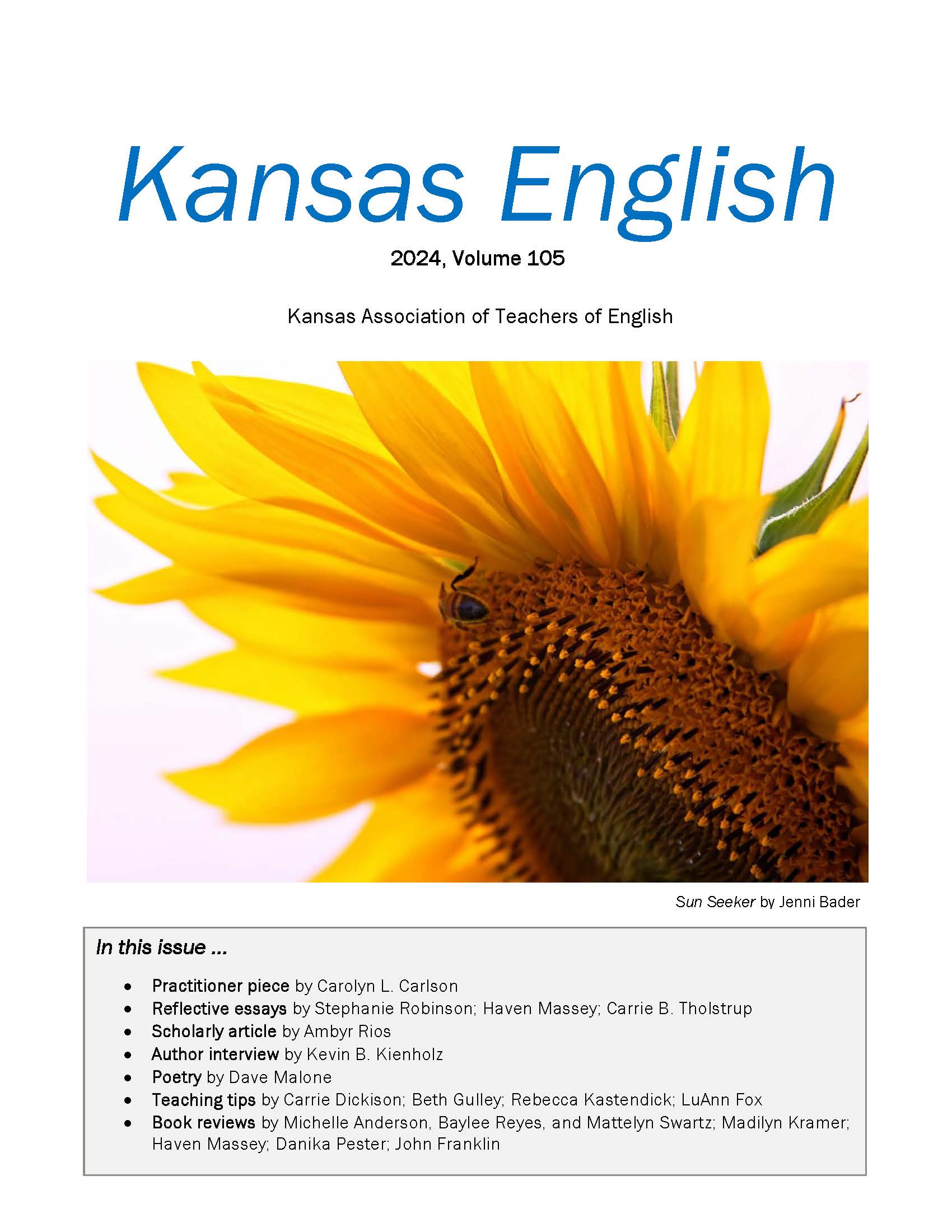The Kansas Literary Canon
A Study of Texts Taught in High School English Courses
DOI:
https://doi.org/10.62704/e222h045Keywords:
English curriculum, text selection practices, diversifying curriculum, high schools, literary canonAbstract
Selecting diverse texts is vital for creating culturally inclusive and responsive literacy classrooms. However, despite growing student diversity and a push for multicultural literature curricular adoption, little impact has been made on secondary teacher multicultural text selection. This text selection stagnation begs further examination amidst the alarming context of a marked reading decline in U.S. classrooms wherein fewer than one-third of students entered high school as proficient readers this year (Nation’s Report Card, 2022). This study uses data from recent high school graduates to unfurl text selection practices in Kansas high school English classrooms. Study results detail Kansas's most frequently taught texts, compare these texts to two previous studies, and suggest a continued homogeneity in text selection. These results demonstrate the need to understand the factors influencing text selection practices and the impact of traditional text selection on students’ engagement, motivation, and learning.
Downloads
References
Downloads
Published
Issue
Section
License

This work is licensed under a Creative Commons Attribution-NonCommercial-NoDerivatives 4.0 International License.

